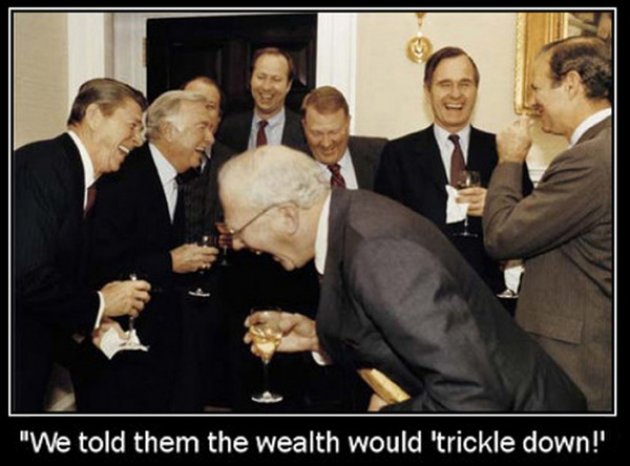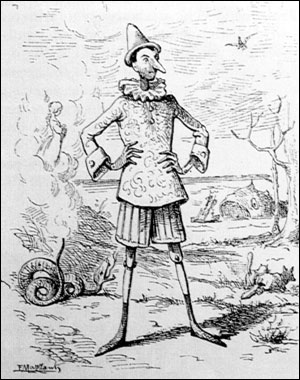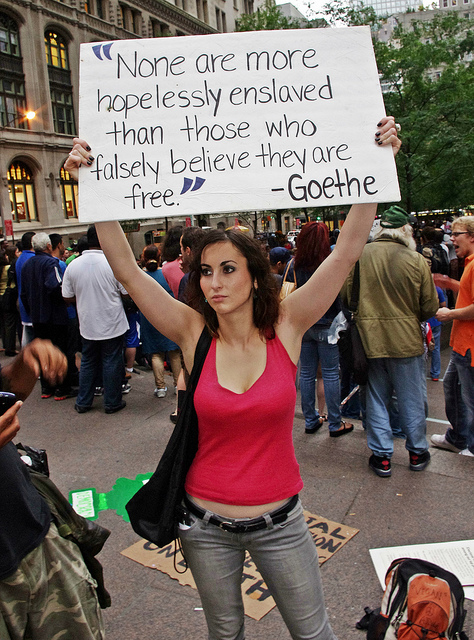It looks like you're using an Ad Blocker.
Please white-list or disable AboveTopSecret.com in your ad-blocking tool.
Thank you.
Some features of ATS will be disabled while you continue to use an ad-blocker.
0
share:
'Somewhere Over The Rainbow'
-Edgar Yipsel Harburg
Somewhere over the rainbow
Way up high
There's a land that I heard of
Once in a lullaby
Somewhere over the rainbow
Skies are blue
And the dreams that you dare to dream
Really do come true
Follow the yellow brick road.
en.wikipedia.org...
godstenlaws.com...-bt8
quotes.dictionary.com...

www.goodreads.com...
This guy must not know that Obrien helped write 'The book' if you know what I mean.
The 'American Dream' is doublethink.
en.wikipedia.org...

Are you somebody? Or are you just 'the public'?
-Edgar Yipsel Harburg
Somewhere over the rainbow
Way up high
There's a land that I heard of
Once in a lullaby
Somewhere over the rainbow
Skies are blue
And the dreams that you dare to dream
Really do come true
Follow the yellow brick road.
The planet Venus is named for the Roman goddess of love and is always the brightest point in the sky. The Romans built temples to Venus, and since it was the first "star" that could be seen in the sky for much of the year, and always the brightest whether seen in the morning or the evening, it was an easy way to remember it as a prayer point. What is the #1 thing that people prayed to Venus for? Love, of course. The prayer evolved into a wish as people forgot the Goddess of Love and her origins, and the wish expanded into realms well outside the beginning point. Like so many other traditions and habits engrained in people that have found their way into modern religions, wishing upon a star evolved from an ancient pagan religion. Simple as that. Read more: wiki.answers.com...
The song reached the top five in Billboard's Record Buying Guide, a predecessor of the retail sales chart. Popular versions included Glenn Miller, Guy Lombardo, Horace Heidt and of course, Cliff Edwards. In Japan, Sweden, Finland, Norway and Denmark, the song has become a Christmas song, often referring to the Star of Bethlehem. The Swedish language version is called Ser du stjärnan i det blå, roughly translated: "do you see the star in the blue(sky)", and the Danish title is "Når du ser et stjerneskud", which roughly translates as "When you see a shooting star". In Denmark, Sweden, Finland and Norway the song is played on television every Christmas Eve in the traditional Disney one-hour Christmas cabaret, and the gathering of the entire family to watch this is considered a Scandinavian tradition.
en.wikipedia.org...
godstenlaws.com...-bt8
Let me tell you about the very rich. They are different from you and me. They possess and enjoy early, and it does something to them, makes them soft where we are hard, and cynical where we are trustful, in a way that, unless you were born rich, it is very difficult to understand. They think, deep in their hearts, that they are better than we are because we had to discover the compensations and refuges of life for ourselves. Even when they enter deep into our world or sink below us, they still think that they are better than we are. They are different. Read more at quotes.dictionary.com...
quotes.dictionary.com...

Ariel Dorfman and Armand Mattelart present a Marxist critique of Disney Comics, under the argument that its representations are composed of the everyday form of our social oppression. Each chapter addresses a different facet of the Disney method. The introductions and forwards set up the cultural context of the book's original publication, that of the Chilean unrest of the 1970s. The first chapter addresses parental roles is Disney comics, or rather the lack thereof; every male is an uncle or nephew, every woman (and there's not many) a niece or aunt. This removal of parents, they argue, reflects a patriarchal system where the only advancement is a temporary reversal. Chapter Two continues the infantilization theme by looking at the way the comics treat "foreign locations" (read: not US) as the homes of child-like noble savages. Chapter 3 continues in this trend, exploring the way the Duck gang do their own exploring--that is, the way they justify removing local treasures from these savage folk. Chapter 4 looks at the class division between the evil and good characters (the latter being mostly the Beagle Boys and Papa Wolf; this argument could have been complicated a bit by examining the rich villainous characters Scrooge goes up against). Chapter 5 looks at Donald Duck as a presentation of the working class, constantly held back by his own laziness rather than economic conditions, and Uncle Scrooge, whose every story reproduces the historic cycle of his class (the rags-to-riches hard worker). The sixth chapter takes the cycle motif to heart: it argues that the characters are locked in a permanent stasis, repeating the same messages and stories over and over.
www.goodreads.com...
This guy must not know that Obrien helped write 'The book' if you know what I mean.
The 'American Dream' is doublethink.
The keyword here is blackwhite. Like so many Newspeak words, this word has two mutually contradictory meanings. Applied to an opponent, it means the habit of impudently claiming that black is white, in contradiction of the plain facts. Applied to a Party member, it means a loyal willingness to say that black is white when Party discipline demands this. But it means also the ability to believe that black is white, and more, to know that black is white, and to forget that one has ever believed the contrary. This demands a continuous alteration of the past, made possible by the system of thought which really embraces all the rest, and which is known in Newspeak as doublethink. Doublethink is basically the power of holding two contradictory beliefs in one's mind simultaneously, and accepting both of them. — Part II, Chapter IX — The Theory and Practice of Oligarchical Collectivism
en.wikipedia.org...

Are you somebody? Or are you just 'the public'?
edit on 7-9-2012 by freemarketsocialist because: (no reason given)
edit on 7-9-2012 by freemarketsocialist because: (no reason
given)
What kind of jobs did the slaves do? There were two kinds of slaves: public and private. The public slaves were government owned, and they had many jobs: secretaries, clerks, prison attendants, executioners, scribes, and accountants. The most famous group of public slaves were the police force in Athens--the "Athenian archers". They were made up of about 300 Scythian slaves. The second type of slave was the private slave. They were owned by an individual master. These slaves did everything from household chores to working in the industrial area. Some of their jobs were: maids, wet-nurses, teachers, and messengers. They also worked in the fields, usually beside their masters. They worked in quarries and mines, and the most famous mine was the silver mine in Laurium, where it has been estimated that 30,000 slaves worked. There were some slaves that were set apart from the others. They were skilled craftsmen who would make things such as shoes or pottery and sell them. They would live outside the master's house on their own but give a certain percentage of their profits to their master. That is why they are sometimes referred to as "pay-bringers", because they would bring some of what they earned to their master. No one in Greece could tell the difference between these slaves and regular citizens
atschool.eduweb.co.uk...

edit on 7-9-2012 by freemarketsocialist because: (no reason given)
......So it seems to me that 2+2=5
edit on 7-9-2012 by freemarketsocialist because: (no reason given)
Well, that escalated quickly.
I have no idea what it is you're trying to de-construct.
But you did seem to put a lot of effort into it, so I'll star and wait to see what I'm supposed to get from this.
I have no idea what it is you're trying to de-construct.
But you did seem to put a lot of effort into it, so I'll star and wait to see what I'm supposed to get from this.
Originally posted by winofiend
Well, that escalated quickly.
I have no idea what it is you're trying to de-construct.
But you did seem to put a lot of effort into it, so I'll star and wait to see what I'm supposed to get from this.
Since the 1920s, numerous authors, such as Sinclair Lewis in his 1922 novel Babbitt, and F. Scott Fitzgerald, in his 1925 classic, The Great Gatsby, satirized or ridiculed materialism in the chase for the American dream. For example, Jay Gatsby's death mirrors the American Dream's demise, reflecting the pessimism of modern-day Americans.[30] The American Dream is a main theme in the book by John Steinbeck, Of Mice and Men. The two friends George and Lennie dream of their own piece of land with a ranch, so they can "live off the fatta the lan'" and just enjoy a better life. But the book shows this is futile, and George ends up killing Lennie. This shows that not everyone can achieve the American Dream, thus proving by contradiction it is not possible.
en.wikipedia.org...
Its doublespeak.
American Dream = Newspeak
Upward Mobility = Newspeak

Omission, Selective Truth Yet, we are not always asked unambiguous questions about our actions. Probably the biggest moral conundrum for truthfulness is omission and selective truth-telling.
I do something wrong. You do not actively ask me about it. I don’t tell you.
Since I haven’t said anything, I obviously haven’t “born false witness”.
en.wikipedia.org...
edit on 7-9-2012 by freemarketsocialist because: (no reason given)

edit on 7-9-2012 by freemarketsocialist because: (no reason given)

edit on 7-9-2012 by freemarketsocialist because: (no reason given)
edit on 7-9-2012 by freemarketsocialist because: (no reason given)
edit on 7-9-2012 by freemarketsocialist because: (no reason given)
edit on 7-9-2012 by
freemarketsocialist because: (no reason given)
new topics
-
Bobiverse
Fantasy & Science Fiction: 2 hours ago -
Florida man's trip overseas ends in shock over $143,000 T-Mobile phone bill
Social Issues and Civil Unrest: 2 hours ago -
Former Labour minister Frank Field dies aged 81
People: 4 hours ago -
SETI chief says US has no evidence for alien technology. 'And we never have'
Aliens and UFOs: 6 hours ago -
This is our Story
General Entertainment: 8 hours ago -
President BIDEN Vows to Make Americans Pay More Federal Taxes in 2025 - Political Suicide.
2024 Elections: 10 hours ago -
Ode to Artemis
General Chit Chat: 11 hours ago
top topics
-
President BIDEN Vows to Make Americans Pay More Federal Taxes in 2025 - Political Suicide.
2024 Elections: 10 hours ago, 14 flags -
Should Biden Replace Harris With AOC On the 2024 Democrat Ticket?
2024 Elections: 17 hours ago, 6 flags -
One Flame Throwing Robot Dog for Christmas Please!
Weaponry: 15 hours ago, 6 flags -
Don't take advantage of people just because it seems easy it will backfire
Rant: 15 hours ago, 4 flags -
Ditching physical money
History: 15 hours ago, 4 flags -
SETI chief says US has no evidence for alien technology. 'And we never have'
Aliens and UFOs: 6 hours ago, 4 flags -
Former Labour minister Frank Field dies aged 81
People: 4 hours ago, 4 flags -
Florida man's trip overseas ends in shock over $143,000 T-Mobile phone bill
Social Issues and Civil Unrest: 2 hours ago, 4 flags -
Ode to Artemis
General Chit Chat: 11 hours ago, 3 flags -
This is our Story
General Entertainment: 8 hours ago, 3 flags
0
